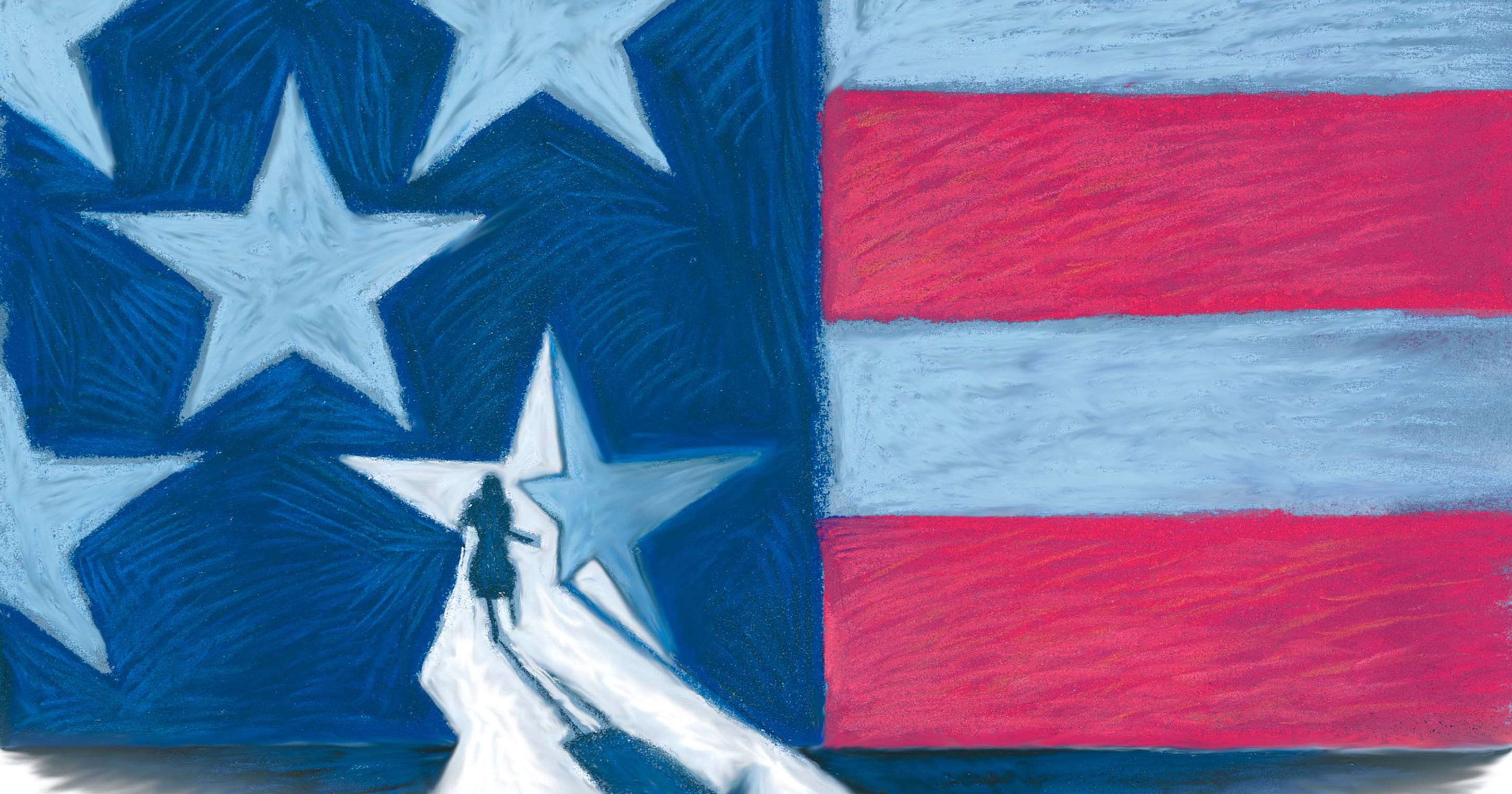My story of assimilation is personal yet universal | Opinion - 5 minutes read
 My story of assimilation is personal yet universal
My story of assimilation is personal yet universalThis June marked a personal milestone for me: I’ve spent as many years here in America as I have in my birth country, India.
I immigrated here 27 years ago in 1992 at the age of 27, so that’s the math. It kind of gives away my age, but never mind, it’s my weight I won’t share with you.
Every immigrant’s experiences of immigrating and assimilating are personal and at the same time universal.
Some things are common: the act of uprooting and transplanting can be life-altering and character-building. There is gratitude for the blessings of your new land, accompanied by an ineffable feeling of loss of the often mythical place in your heart called “home.”
And so it was for me too, a sort-of born-again experience – leaving the comforting cocoon of my extended family in India, coming here with the proverbial four suitcases with my newly-wed husband, assimilating into a radically different culture from the one I grew up in, and gradually transforming into a hybrid citizen who straddles two cultures, two worldviews.
I remember the early years like it was yesterday. On the first night we were here, my husband went to a store nearby and got some plates and cups. I still have and can’t bear to throw away two cups, old and coffee-stained as they are.
I remember the mixed bag of emotions of those years: excitement, curiosity, enjoyment, homesickness, confusion, disorientation. The first couple years, I felt like a tourist, unable to engage fully with the culture here.
I’d switch on the TV, see Oprah on but be unable to relate to the things she talked about. I’d scan the newspaper and it’d just be a sea of words, utterly foreign to me. I chuckle now at how delicate my sensibilities were then, for I’d be constantly shocked by the prurience and profanity on TV.
Assimilation happened to me, gradually, inexorably, but what also helped were the many Americans along the way who were warm, generous, helpful, and accepting of all the ways I was different from them.
For several of those early years, there was financial struggle, and a cycle of being broke-and-borrowing each month-end. I spent hours on the public bus each day going to work in Orlando and then in Dallas as we couldn’t afford a second car.
I’m grateful for those hardships: they keep me from being self-satisfied now, from taking anything for granted, and have me seeing anyone less fortunate and thinking there-but-for-the-grace-of-God-go-I.
Also, what seems so last-century now: calls home to India on our dollar-a-minute AT&T meter were expensive then, and resulted in some truncated calls.
And if I wanted to send pictures of my babies home, I’d, of course, have to take film to a Walgreens, go back for the pictures, then go to a post office to weigh and stamp them, for them to reach my parents a fortnight later.
Needless to say, I’m envious of newly arrived immigrants today with their Skype and WhatsApp and everything else.
On another personal note, I’m grateful to this country for an important thing: its ethos of individualism and recognizing every individual’s uniqueness enabled this bookworm and misfit to find her calling: to parlay a life-long love of reading, and of words and ideas into a career of writing and self-expression.
Ironically, what pulled me into the American mainstream years ago was one of the oldest human stories there is: a sex scandal. The Monica Lewinsky story broke in 1998 and pulled me deeply into American politics and culture, and I haven’t left since.
The best part of immigration and assimilation is that you feel like you’re at a giant buffet where you get to pick, choose and retain the best from both worlds. That’s the hidden gift of all these years of change, and adopting and adapting.
My American story is a personal one, yet it mirrors that of millions of foreign-born Americans: of one who goes from an “other” to being an American but who also still retains aspects of the other.
Saritha Prabhu of Clarksville is a USA TODAY NETWORK Tennessee columnist. Reach her at sprabhu43.com.
Source: Tennessean.com
Powered by NewsAPI.org
Keywords:
Cultural assimilation • British Raj • Immigration • Immigration • Life • Gratitude • Ineffability • Feeling • Born again • Extended family • British Raj • We Were Here (film) • Coffee • Emotion • Psychomotor agitation • Curiosity • Happiness • Homesickness • Confusion • Orientation (mental) • Intimate relationship • Culture • Profanity • Cultural assimilation • Orlando, Florida • Dallas • India • AT&T • Walgreens • Skype • WhatsApp • Ethos • Individualism • Individual • Bibliophilia • Life • Reading (process) • Word • Theory of Forms • Writing • Mainstream • Human rights • Narrative • Lewinsky scandal • Lewinsky scandal • Politics of the United States • Culture • Cultural assimilation • Saritha • Prabhu (actor) • Clarksville, Tennessee • USA Today • Hit Network • Tennessee •